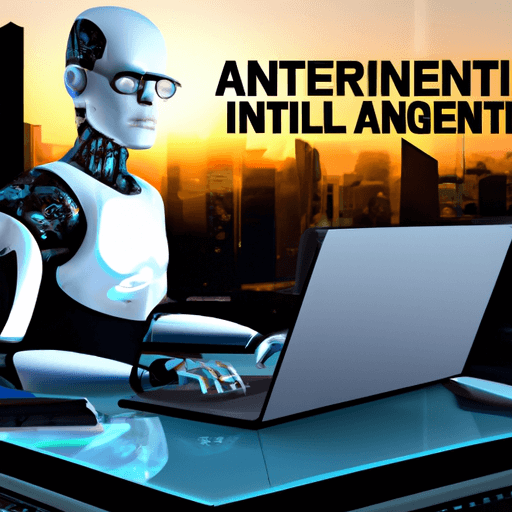The Role of Artificial Intelligence in Shaping Future Entrepreneurship
Artificial Intelligence (AI) represents the new age of technological advancement, taking on an increasingly transformative role across various sectors. Perhaps nowhere is this metamorphosis more evident than in the realm of entrepreneurship. AI has begun unveiling a new path for the future of entrepreneurship, offering a raft of opportunities as well as challenges. This article extensively explores the intersection of AI and entrepreneurship.
Incorporating AI in Modern Entrepreneurship
AI’s integration in entrepreneurship has been driven by its potential to streamline business processes and support decision-making. The increasing deployment of AI-powered tools assists in the optimization of business operations, reducing human error and improving efficiency. From managing assets in a sustainable manner to advertising products and services with precision, AI is revolutionizing how businesses function.
In addition, the capacity of AI to gather and analyze vast volumes of data equips entrepreneurs with accurate and actionable insights. This largely aids in the decision-making process, enabling businesses to make predictions based on existing data patterns.
A cornerstone of entrepreneurship is the value delivered to customers. AI has also redefined the consumer experience. Intuitive AI-backed systems are empowering businesses to deliver personalized experiences and services to their consumers, thus boosting customer engagement and loyalty.
Opportunities Presented by AI
While established businesses are benefiting from AI, startups, also, are among the major beneficiaries of this technological revolution. AI offers potential new sectors and opportunities for innovation. It supports startups in identifying gaps in markets, creating distinctive solutions, and offering competitive advantages, among other things.
AI provides an unparalleled capability for businesses to scale, given its ability to process information at a rate unattainable by human personnel. Additionally, AI can help automate routine tasks, freeing up human resources for more strategic tasks, thus enhancing productivity and the bottom line.
Challenges and Ethical Considerations
Despite the immense potential AI possesses, it also brings forth significant challenges and ethical considerations. Concerns around privacy, security, job displacement, and accountability are high on the list. Apps and systems powered by AI have a voracious appetite for data, which if mismanaged could lead to severe breaches of privacy.
Furthermore, there is fear that widespread automation may lead to massive job displacement. As AI-powered machines perform tasks formerly conducted by humans, the job market might face severe disruptions. Companies will have to manage these transitions carefully.
Bracing for an AI-Dominant Future
Given the potential of AI to reshape business paradigms, entrepreneurs must adapt. In the face of rapid technological developments, they must keep abreast with AI developments and consider integrating them into their business models. Investing in AI education and awareness, and fostering a culture of innovation and constant learning can better equip businesses for an AI-dominated future.
Furthermore, entrepreneurs must not overlook the ethical implications of AI deployment. Balancing innovation with responsible handling of potential AI pitfalls will be the key to succeeding in an AI-driven landscape.



















Comments
Leave a Comment